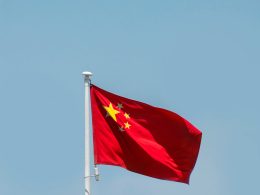Brexit, the portmanteau of “British” and “exit,” marked the United Kingdom’s (UK) decision to leave the European Union (EU) after a historic referendum in June 2016. The ramifications of this decision have been profound, affecting various sectors across the UK and the EU. This article explores the final casualties of Brexit, analyzing the impact on the economy, politics, society, and international relations.
Economic Impact

Trade and Tariffs
Brexit introduced significant changes in trade dynamics between the UK and the EU. The introduction of tariffs and non-tariff barriers has disrupted supply chains, increased costs, and affected businesses reliant on EU trade.
Analysis Table: Economic Impact
| Sector | Pre-Brexit Status | Post-Brexit Impact | Comment |
|---|---|---|---|
| Trade | Free movement of goods and services | Introduction of tariffs, customs checks | Increased costs and delays |
| Manufacturing | Integrated EU supply chains | Disrupted supply chains, increased costs | Reduced competitiveness |
| Financial Services | EU “passporting” rights | Loss of passporting rights, relocation of firms | Reduced access to EU markets |
| Agriculture | EU subsidies and market access | Loss of subsidies, new trade barriers | Financial strain on farmers |
| Fishing | Shared EU waters access | Reduced fishing quotas, market access issues | Decline in industry profitability |
Financial Services
The financial sector has been particularly hard hit by Brexit. London’s status as a global financial hub has been challenged, with several financial institutions relocating operations to other EU cities to maintain access to EU markets. The loss of EU “passporting” rights, which allowed financial services to operate across the EU without additional regulatory approval, has been a significant blow.
Political Consequences
National Unity
Brexit has exacerbated regional tensions within the UK, particularly in Scotland and Northern Ireland. Scotland, which voted overwhelmingly to remain in the EU, has renewed calls for independence. Northern Ireland faces unique challenges with the implementation of the Northern Ireland Protocol, designed to avoid a hard border with the Republic of Ireland but resulting in a de facto customs border in the Irish Sea.
Party Politics
Brexit has reshaped the political landscape in the UK, affecting both major political parties. The Conservative Party, which championed Brexit, has seen internal divisions and leadership changes. The Labour Party has struggled to reconcile its pro-EU membership base with the broader electorate’s vote to leave.
Social Implications
Immigration
Brexit has brought significant changes to the UK’s immigration policies. The end of free movement has affected both EU citizens living in the UK and UK citizens living in the EU. Many EU nationals have left the UK, leading to labor shortages in sectors such as healthcare, agriculture, and hospitality.
Comparative Table: Social Impact
| Aspect | Pre-Brexit Status | Post-Brexit Impact | Comment |
|---|---|---|---|
| Immigration | Free movement of people | End of free movement, new immigration system | Labor shortages in key sectors |
| Education | Erasmus program participation | Withdrawal from Erasmus, introduction of Turing Scheme | Reduced international student exchange |
| Public Sentiment | Polarized but largely pro-EU | Increased polarization, rise in nationalism | Social divisions deepened |
| Healthcare | Reliance on EU healthcare workers | Reduced EU staff, staffing shortages | Strain on healthcare services |
| Cultural Exchange | Ease of cross-border cultural events | Increased bureaucratic hurdles | Decline in cultural exchange |
Public Sentiment
The referendum and its aftermath have polarized British society, leading to increased political and social divisions. Nationalist sentiments have risen, and debates over national identity have become more pronounced. This polarization has had long-lasting effects on public discourse and community cohesion.
International Relations
EU Relations
Brexit has inevitably strained relations between the UK and the EU. Negotiations over trade deals, the Northern Ireland Protocol, and fishing rights have been contentious. The UK’s departure has also impacted its ability to influence EU policy, a power it wielded effectively as a member.
Global Standing
Brexit has also affected the UK’s global standing. The decision to leave the EU was seen by some international observers as a retreat from multilateralism. The UK has sought to reposition itself through new trade deals and alliances, but this has proven to be a complex and challenging process.
Future Prospects
As the dust settles, the UK must navigate its post-Brexit future. The focus will likely be on stabilizing the economy, addressing political and social divisions, and redefining its role on the global stage. The success of these efforts will determine the long-term impact of Brexit on the UK and its citizens.
Analysis Table: Future Prospects
| Area | Key Challenges | Potential Opportunities | Comment |
|---|---|---|---|
| Economy | Trade barriers, regulatory divergence | New trade deals, economic diversification | Requires strategic planning |
| Politics | Regional tensions, party divisions | Constitutional reforms, political realignment | Need for inclusive dialogue |
| Society | Social polarization, labor shortages | Community building, new immigration policies | Focus on social cohesion |
| International Relations | Strained EU ties, global positioning | Strengthening non-EU alliances, new trade partners | Diplomatic balancing act |
Conclusion
Brexit represents a significant turning point in the UK’s history, with far-reaching consequences across economic, political, social, and international spheres. While some impacts are immediate and visible, others will unfold over time, shaping the UK’s future trajectory. Understanding the final casualties of Brexit is crucial for policymakers, businesses, and citizens as they navigate the new landscape and work towards mitigating its adverse effects while capitalizing on potential opportunities.












